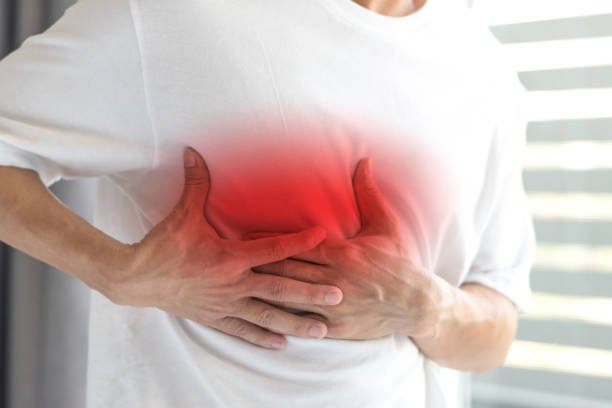When to Go to Hospital for Gallbladder Attack
A gallbladder attack, also known as a gallstone attack or biliary colic, occurs when a stone blocks the bile ducts, causing intense pain.

A gallbladder attack, also known as a gallstone attack or biliary colic, occurs when a stone blocks the bile ducts, causing severe pain. The gallbladder is a small organ that stores bile, which helps digest fats. Gallstones can form and obstruct the bile ducts, leading to discomfort and potential complications. Knowing when to go to hospital for gallbladder attack is crucial for preventing more serious health issues. While mild attacks may resolve on their own, intense or prolonged pain, fever, jaundice, or changes in stool and urine color are signs that immediate medical care is needed.
Common Symptoms of a Gallbladder Attack
The most noticeable symptom of a gallbladder attack is severe pain, often referred to as "biliary colic." This pain typically occurs in the upper right side of the abdomen, but it can also radiate to the back or shoulder blades. The intensity of the pain can vary, but it usually lasts from a few minutes to several hours. Additional symptoms may include:
- Nausea and vomiting
- Indigestion or bloating
- Fever or chills
- Jaundice (yellowing of the skin or eyes)
- Dark urine or light-colored stools
While mild attacks may subside after a short period, others can become more serious and require medical intervention.
When to Seek Hospital Care
If you experience symptoms that suggest a gallbladder attack, you should assess the situation carefully. It is essential to seek medical help in the following situations:
1. Severe or Unrelenting Pain
If the pain lasts more than a few hours or is extremely intense, it could indicate a more severe problem, such as a blocked bile duct or an infection of the gallbladder. This level of pain often requires immediate medical attention.
2. Fever and Chills
A fever, especially if it is accompanied by chills, suggests that the gallbladder might be infected. An infection can lead to more serious complications, including sepsis, which is a life-threatening condition. If you experience these symptoms, it is crucial to go to the hospital right away.
3. Jaundice
If your skin or eyes turn yellow (jaundice), it may be a sign that the gallstone is obstructing the bile duct, preventing bile from draining properly. This condition can lead to liver damage and requires urgent medical care.
4. Nausea and Vomiting
Continuous nausea and vomiting, especially if they are severe, can lead to dehydration and make it difficult for your body to recover. If these symptoms persist or worsen, you should seek medical attention.
5. Trouble Breathing
If you experience difficulty breathing or chest pain along with abdominal symptoms, it could signal a more serious problem, such as a gallstone blocking the duct or even a heart attack. Both situations require immediate emergency care.
6. Change in Stool or Urine Color
Dark urine and pale stools are signs that the bile flow is obstructed, which could indicate a blocked bile duct or other severe complications. These symptoms should not be ignored.
Emergency Medical Treatment
At the hospital, doctors will typically conduct tests, including an ultrasound or CT scan, to diagnose the issue. If the attack is caused by gallstones, treatment may involve medication to manage the pain or surgery to remove the gallbladder (cholecystectomy). In some cases, doctors may need to drain the bile ducts if an infection or blockage is present.
Preventing Future Gallbladder Attacks
While gallstones may not always be preventable, there are steps you can take to reduce the risk of developing them or experiencing a future attack:
- Maintain a healthy weight: Obesity is a major risk factor for gallstones.
- Eat a balanced diet: Focus on high-fiber, low-fat foods and avoid rapid weight loss.
- Exercise regularly: Physical activity can help maintain healthy digestion and prevent the formation of gallstones.
- Stay hydrated: Drinking plenty of water helps your digestive system function optimally.
Conclusion
If you suspect you are experiencing a gallbladder attack, it's important to take the symptoms seriously. While mild discomfort may resolve on its own, severe pain, fever, jaundice, or changes in urine and stool color are all signs that you should go to the hospital immediately. Prompt medical care can help prevent complications and ensure that any underlying issues are addressed effectively. If you experience recurrent attacks or ongoing symptoms, it is essential to consult with your doctor to explore long-term solutions, such as gallbladder removal surgery or other treatment options.












